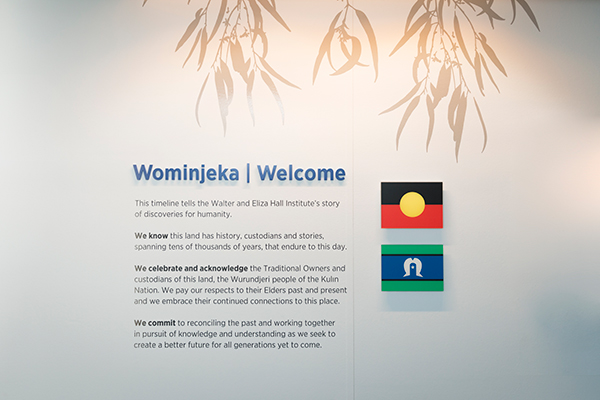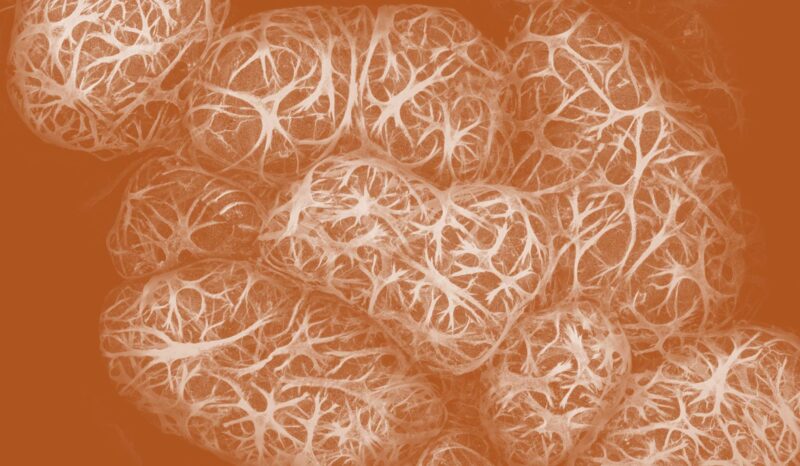We are lending our support to the drive to establish a First Nation’s voice to Parliament that is enshrined in the constitution. WEHI made this submission to the Joint Select Committee Inquiry into Constitutional Recognition Relating to Aboriginal and Torres Strait Islander Peoples in June 2018.
Walter and Eliza Hall Institute submission to the Joint Select Committee Inquiry into Constitutional Recognition Relating to Aboriginal and Torres Strait Islander Peoples
The Walter and Eliza Hall Institute of Medical Research is the oldest medical research Institute in Australia. The Institute conducts medical research in three key areas: cancer, immune disorders and infectious diseases. With over 1000 staff and 14 research divisions supported by professional services teams we reflect a cross-section of the Australian community including overseas nationals who have come to our country to study and work.
In 2013, the Institute made the decision to join Reconciliation Australia’s Reconciliation Action Plan (RAP) program in recognition of the need to make a formal commitment to reconciliation. A key driver for this commitment was to ensure we play an active role in achieving health equity for Aboriginal and Torres Strait Islander peoples. In order to understand how we can best lend our voices, knowledge and resources in the journey towards reconciliation we must listen to and learn from Aboriginal and Torres Strait Islander peoples. We strive to create a culture of respect, increase awareness and understanding of Aboriginal and Torres Strait Islander history, culture and connection to this land, and to build strong community relationships. It is through this process that we will be enabled to contribute to closing the gap in life expectancy and disease burden.
We believe that all people in our communities should benefit from the great things that our country has to offer, including equality of access and outcome in health and education, and that every person should have a say in decisions that directly affect them. It is in this spirit that we stand with Aboriginal and Torres Strait Islander Peoples in the quest to establish a First Nations voice to Parliament enshrined in the constitution, as outlined in the Uluru Statement from the Heart. We also support the formation of the Makarrata Commission to further strengthen the process of reconciliation in this country. Many lines of evidence tell us that health is closely linked to social, economic, cultural and historic factors and this will permeate our efforts at all levels to improve the health of Aboriginal and Torres Strait Islander peoples.



